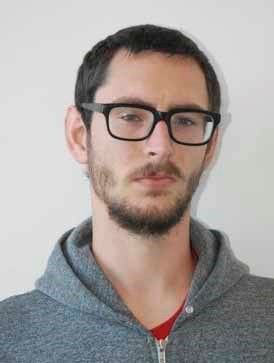I was invited to be a judge at the North Battleford Comprehensive High School debate Friday night. I've never been part of a debate team before (let alone judged a debate), but I jumped at the opportunity.
Debates had always been a part of my school life from junior high all the way to the university level. In grade school, we debated timely issues, along with "joke" issues that weren't terribly funny, like whether schools should have uniforms (since the school I went to already had uniforms and had no willingness to change, it was a meaningless debate). In university, on the other hand, my faculty had yearly student-prof debates, which always proved uproariously funny - topics included whether artists make better lovers than scientists (a statistics prof and a calculus prof debating two arts students) or whether artists or scientists have a better grasp on reality.
I guess my university degree also prepared me to a certain extent, as I took a large number of philosophy classes.
As I always try to argue, the substance of a philosophy education doesn't really teach anyone anything, though I'm sure there are many who would disagree with this idea. To me though, knowing Frege's sense and reference distinction, Donald Davidson's response and Quine's attack on logical positivism is less important than the process of learning them. Philosophy, to me, is a steady, measured, systematic descent into the depths of the human mind, testing the sheer breadth of our possible thoughts. Any kind of philosophy, whether it is directly useful (political, legal, moral philosophy, etc.) or more esoteric (philosophy of language, existentialism and so on) forces us to realize there is much in our thought that we take for granted.
So I came to the debate enthusiastic, if a bit under-qualified. Every judge completed a brief training session, which served to explain to all of us the basic format of the debate and what to expect. The topic was announced beforehand, for both the judges and the debaters, and each team would debate the topic three times - one time for and two times against or two times for and one time against. Each team would be composed of two debaters. The affirmative side would speak first and set the terms of the debate (defining words and limiting the debate's scope), and speak last. After each speech, the speaker would be cross-examined by the other side.
So, on Friday the 13th, I found myself sitting in a high school classroom with two other judges, four debaters, a timekeeper, a moderator and a few parents and debate coaches. The topic for the night was that "This house should condemn the use of drones in warfare" - a timely question, especially considering the Obama administration's vastly increased use of drones for assassinations.
I came into the debate knowing about the widespread use of drones, but without having thought carefully about the moral implications. I suppose I supported their use, though, if only because an unmanned plane risks fewer lives than a manned one.
But over the next four hours of statements, arguments and questions, I was thoroughly converted. This wasn't necessarily because the affirmative side was necessarily better, as I did consider the negative side to have won handily one of the three times. But overall, regardless of an individual debater's performance, I thought the arguments in favour of banning drones were more effective.
Each debate had its intricacies and foibles. There were bizarre, obvious questions during the cross-examination, possibly envisioned to entrap the opponents, but really just confusing all those in attendance. Questions included: "if you were building a house, would you use a hammer or a saw?", "what is murder?" and one particularly confusing question involving a hypothetical society without road rules or any kind of road safety. How any of these related to the use of drones in warfare was anybody's guess, even after the debater explained, with what I might falsely remember as a sweeping gesture and a devious smirk, that their opponent's answer to each question had annihilated their opponent's entire argument.
There was also disrespect shown, especially in the case of a debater who arrogantly proclaimed that he had not heard of drones being hacked into (insurgents in Iraq intercepted live feed from Predator drones in 2009).
But overall, the debates were great fun for everyone involved. After the first debate, the other two judges and I discussed the debate topic for a long time, long enough for me to miss my dinner. And at the end of every debate, each judge spoke at length. Though we had been told in training that we shouldn't feel we have to speak, after the first debate there was no danger any one of us would have too little to say.
And despite the occasional frustrating comment or argument, the debaters were also generally great. The 12 high school students we judged thought of more arguments and strategies than the three of us did, to be sure.
When it came time to give my last piece of commentary, around 9 p.m., I have to admit that I did feel a little sad. I wished there had been one more debate, with flaws (or lack thereof), and one more opportunity to dig into an argument.
But I left filled with thoughts, ponderings, musings, my mind buzzing like a beehive. If that's not the mark of a good debate, I don't know what is.


.png;w=120;h=80;mode=crop)

